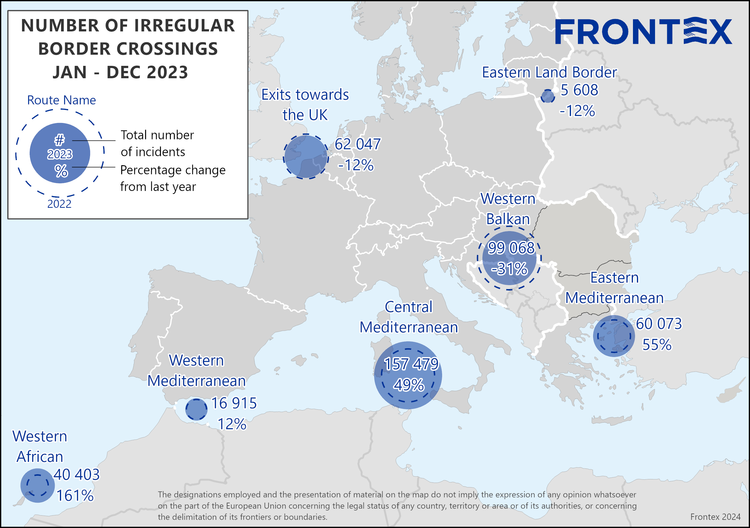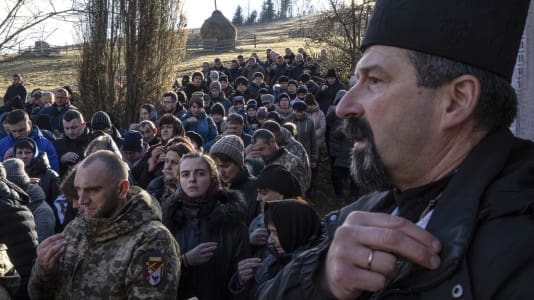Borders are incapable of stopping immigration into Europe and campaigners should refrain from adopting “superficial” alarmism toward the issue and accept that migration is a reality, the man responsible for running the European Union’s border agency has claimed.
In an interview with Germany’s Die Welt newspaper, Frontex chief Hans Leijtens said that “nothing can stop people from crossing a border — no wall, no fence, no sea, no river,” and insisted that the European Commission look to create more legal routes into the bloc in order to take the power away from people smugglers profiteering from the current migratory landscape.
“Four steps are necessary on the way to good border management,” he told the newspaper, first calling for it to become “more difficult” for migrants to enter “with the help of smugglers” by providing legal alternatives.
“Secondly, there must be an end to this superficial preoccupation with the issue, with the alarmism. We never go deeper than discussing push and pull effects. But migration is a reality,” Leijtens insisted.
The border agency chief added that the European Union must make every effort “to know who is crossing our borders” and that effective processing of asylum applications must take place, with those who are rejected for asylum being deported.
The Dutch official, who has led Frontex since March last year, appeared to disagree with the approach taken by member states such as Hungary and the Baltic nations to reinforce their external borders — a move that has significantly stemmed the flow of illegal immigration through those countries.
According to Frontex’s own data, the two migratory routes into Europe where border protection has been a priority of the respective governments – namely Hungary, Poland, and the Baltics – are the only routes to have seen a decrease in irregular border crossings last year.
The Western Balkan route saw crossings drop by 31 percent year-on-year while the Eastern Land Border from Belarus into Poland and Lithuania, and from Russia into Latvia, decreased by 12 percent.

“Sometimes it is pretended that you can simply put a cap on the top of the bottle and then the migration will be stopped. But that is a misconception,” Leijtens claimed.
“Who am I to presume to condemn migrants? I’m sitting here in my office in Warsaw, of course, I could do that – but that would be too easy.
“This talk of ‘stopping people’ and ‘closing borders’ cannot be our narrative all the time. My job is to create a balance between effective border management and compliance with fundamental rights,” he added.





